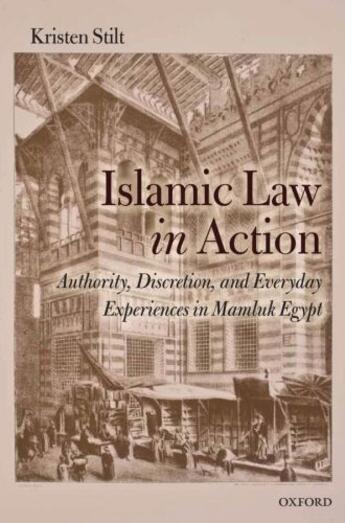Des idées de lecture pour ce début d'année !
Passionné(e) de lecture ? Inscrivez-vous
gratuitement ou connectez-vous pour rejoindre la
communauté et bénéficier de toutes les fonctionnalités du site !

A dynamic account of the practice of Islamic law, this book focuses on the actions of a particular legal official, the muhtasib, whose vast jurisdiction included all public behavior.
In the cities of Cairo and neighboring Fustat during the Mamluk period (1250-1517), the men who held the position of muhtasib acted as regulators of markets and public spaces generally. They traversed their jurisdictions carrying out the duty to command right and forbid wrong, and were as much a part of the legal landscape as the better-known figures of judge and mufti. Taking directions from the rulers, the sultan foremost among them, they were also guided by legal doctrine as formulated by the jurists, combining these two sources of law in one face of authority.
The daily workings of the law are illuminated by the reports of the muhtasib in the vivid Mamluk-era chronicles, which often also captured the responses of the individuals who encountered the official.
The book is organized around actions taken by the muhtasib in the areas of Muslim devotional and pious practices; crimes and offenses; the management of Christians and Jews; market regulation and consumer protection; the specific markets for essential bread; currency and taxes; and public order. The case studies presented show that while legal doctrine was clearly relevant to the muhtasib's actions, the policy demands of the sultan were also quite significant, and rules from both sources of authority intersected with social, political, economic, and personal factors to create full and vibrant scenarios that reveal the practice of Islamic law.
Il n'y a pas encore de discussion sur ce livre
Soyez le premier à en lancer une !

Des idées de lecture pour ce début d'année !

Si certaines sont impressionnantes et effrayantes, d'autres sont drôles et rassurantes !

A gagner : la BD jeunesse adaptée du classique de Mary Shelley !

Caraïbes, 1492. "Ce sont ceux qui ont posé le pied sur ces terres qui ont amené la barbarie, la torture, la cruauté, la destruction des lieux, la mort..."